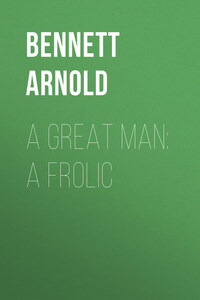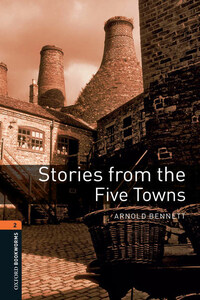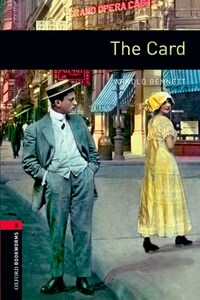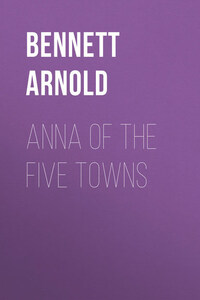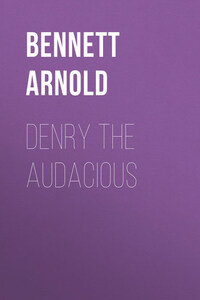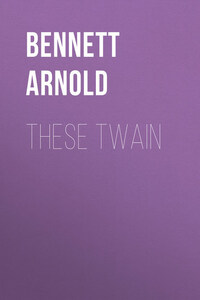On an evening in 1866 (exactly eight hundred years after the Battle of Hastings) Mr. Henry Knight, a draper's manager, aged forty, dark, clean-shaven, short, but not stout, sat in his sitting-room on the second-floor over the shop which he managed in Oxford Street, London. He was proud of that sitting-room, which represented the achievement of an ideal, and he had a right to be proud of it. The rich green wall-paper covered with peonies in full bloom (poisoning by arsenical wall-paper had not yet been invented, or Mr. Knight's peonies would certainly have had to flourish over a different hue) matched the magenta table-cloth of the table at which Mr. Knight was writing, and the magenta table-cloth matched the yellow roses which grew to more than exhibition size on the Axminster carpet; and the fine elaborate effect thus produced was in no way impaired, but rather enhanced and invigorated, by the mahogany bookcase full of imperishable printed matter, the horsehair sofa netted in a system of antimacassars, the waxen flowers in their glassy domes on the marble mantelpiece, the Canterbury with its spiral columns, the rosewood harmonium, and the posse of chintz-protected chairs. Mr. Knight, who was a sincere and upright man, saw beauty in this apartment. It uplifted his soul, like soft music in the gloaming, or a woman's face.
Mr. Knight was writing in a large book. He paused in the act of composition, and, putting the pen between his teeth, glanced through the pages of the volume. They were filled with the drafts of letters which he had addressed during the previous seven years to the editors of various newspapers, including the Times, and several other organs great then but now extinct. In a space underneath each letter had been neatly gummed the printed copy, but here and there a letter lacked this certificate of success, for Mr. Knight did not always contrive to reach his public. The letters were signed with pseudonyms, such as A British Citizen, Fiat Justitia, Audi Alteram Partem, Indignant, Disgusted, One Who Knows, One Who Would Like to Know, Ratepayer, Taxpayer, Puzzled, and Pro Bono Publico – especially Pro Bono Publico. Two letters, to a trade periodical, were signed A Draper's Manager of Ten Years' Standing, and one, to the Clerkenwell News, bore his own real name.
The letter upon which he was now engaged was numbered seventy-five in the series, and made its appeal to the editor of the Standard. Having found inspiration, Mr. Knight proceeded, in a hand distinguished by many fine flourishes:
' … It is true that last year we only paid off some four millions, but the year before we paid, I am thankful to say, more than nine millions. Why, then, this outcry against the allocation of somewhat less than nine millions out of our vast national revenue towards the further extinction of the National Debt? It is not the duty of the State, as well as of the individual, to pay its debts? In order to support the argument with which I began this communication, perhaps you will permit me, sir, to briefly outline the history of the National Debt, our national shame. In 1688 the National Debt was little more than six hundred thousand pounds…'
After briefly outlining the history of the National Debt, Mr. Knight began a new paragraph thus:
'In the immortal words of Shakspere, wh – '
But at this point he was interrupted. A young and pleasant woman in a white apron pushed open the door.
'Henry,' she called from the doorway.
'Well?'
'You'd better go now.'
'Very well, Annie; I'll go instantly.'
He dropped the pen, reduced the gas to a speck of blue, and in half a minute was hurrying along Oxford Street. The hour was ten o'clock, and the month was July; the evening favoured romance. He turned into Bury Street, and knocked like fate at a front-door with a brass tablet on it, No. 8 of the street.
'No, sir. He isn't in at the moment, sir,' said the maid who answered Mr. Knight's imperious summons.
'Not in!' exclaimed Mr. Knight.
'No, sir. He was called away half an hour ago or hardly, and may be out till very late.'
'Called away!' exclaimed Mr. Knight. He was astounded, shocked, pained. 'But I warned him three months ago!'
'Did you, sir? Is it anything very urgent, sir?'
'It's – ' Mr. Knight hesitated, blushing. The girl looked so young and innocent.
'Because if it is, master left word that anyone was to go to Dr. Christopher's, 22, Argyll Street.'
'You will be sure to tell your master that I came,' said Mr. Knight frigidly, departing.
At 22, Argyll Street he was informed that Dr. Christopher had likewise been called away, and had left a recommendation that urgent cases, if any, should apply to Dr. Quain Short, 15, Bury Street. His anger was naturally increased by the absence of this second doctor, but it was far more increased by the fact that Dr. Quain Short happened to live in Bury Street. At that moment the enigma of the universe was wrapped up for him in the question, Why should he have been compelled to walk all the way from Bury Street to Argyll Street merely in order to walk all the way back again? And he became a trinity consisting of Disgusted, Indignant, and One Who Would Like to Know, the middle term predominating. When he discovered that No. 15, Bury Street, was exactly opposite No. 8, Bury Street, his feelings were such as break bell-wires.
